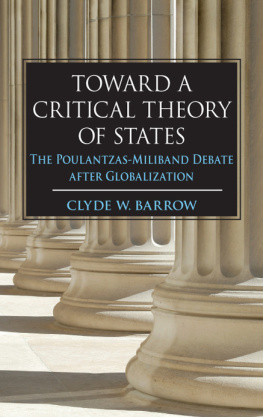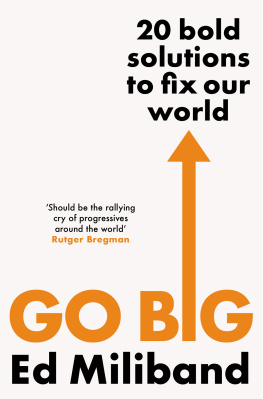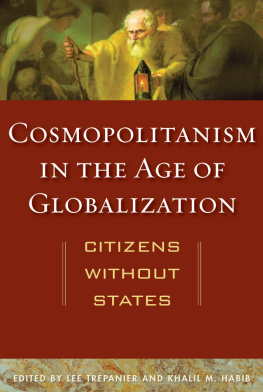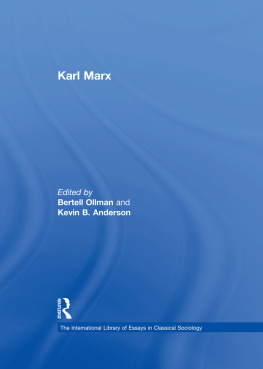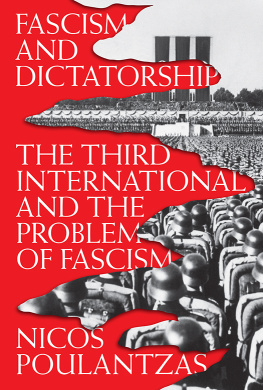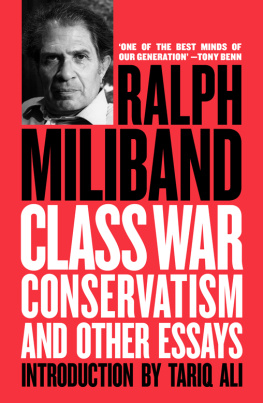TOWARD A CRITICAL THEORY OF STATES
SUNY series in New Political Science
Bradley J. Macdonald, editor
TOWARD A CRITICAL THEORY OF STATES
The Poulantzas-Miliband Debate after Globalization
CLYDE W. BARROW
Cover art from iStockphoto by Getty Images
Published by State University of New York Press, Albany
2016 State University of New York
All rights reserved
Printed in the United States of America
No part of this book may be used or reproduced in any manner whatsoever without written permission. No part of this book may be stored in a retrieval system or transmitted in any form or by any means including electronic, electrostatic, magnetic tape, mechanical, photocopying, recording, or otherwise without the prior permission in writing of the publisher.
For information, contact State University of New York Press, Albany, NY
www.sunypress.edu
Production, Diane Ganeles
Marketing, Kate R. Seburyamo
Library of Congress Cataloging-in-Publication Data
Names: Barrow, Clyde W., author.
Title: Toward a critical theory of states : the Poulantzas-Miliband debate after globalization / Clyde W. Barrow.
Description: Albany : State University of New York Press, 2016. | Series: SUNY series in new political science | Includes bibliographical references and index.
Identifiers: LCCN 2015042432 | ISBN 9781438461793 (hardcover : alk. paper) | e-IBSN 978-1-4384-6181-6
Subjects: LCSH: State, ThePhilosophy. | Nation-state and globalization. | Marxian school of sociology. | Poulantzas, Nicos Ar. | Miliband, Ralph.
Classification: LCC JC11 .B375 2016 | DDC 320.101dc23 LC record available at http://lccn.loc.gov/2015042432
10 9 8 7 6 5 4 3 2 1
CONTENTS
ACKNOWLEDGMENTS
I owe special thanks to the many individuals who encouraged me to keep writing on state theory even after I thought I had nothing left to say on the topic. In this pursuit, I have often been encouraged by Stanley Aronowitz, Peter Bratsis, Paul Wetherly, Manfred Steger, and Leo Panitch, and by the many students who have taken my seminars in Marxian Political Theory and Critical Theories of the State. I also benefited from many informal discussions and seminar sessions while spending time as a visiting scholar at the Centro de Estudios de Educacin Superior, Universidad de Puerto Rico (2010); the Faculty of Social Science, Kassel Universitt (2005); and the Institute for Political Science, Philipps-Universitt Marburg (2003).
I also gratefully acknowledge the following publishers, who have generously allowed me to reclaim my work without a fee:
: The Miliband-Poulantzas Debate: An Intellectual History. Pp. 352 in Stanley Aronowitz and Peter Bratsis, eds., Paradigm Lost: Revising State Theory . Minneapolis: University of Minnesota Press, 2002.
: Plain Marxists, Sophisticated Marxists, and C. Wright Mills The Power Elite . Science & Society , Vol. 71, No. 4 (October 2007): 400431. Copyright Guilford Press and reprinted with permission of Guilford Press.
: Ralph Miliband and the Instrumentalist Theory of the State: The (Mis)Construction of an Analytic Concept. Pp. 84108 in Paul Wetherly, Clyde W. Barrow, and Peter Burnham, eds., Class, Power, and the State in Capitalist Society: Essays on Ralph Miliband . London: Palgrave MacMillan, 2007.
: A much abridged version of Chapter 5 appeared in German as State Theory and the Epistemologies of Structuralism (in German). Pp. 3247 in Lars Bretthauer, Alexander Gallas, John Kannankulam, und Ingo Stutzle, eds., Poulantzas Lesen: Zur Aktualitat Marxistischer Staatstheorie . Hamburg, Germany: Verlag-Springer, 2006 and in English in Lars Bretthauer, Alexander Gallas, John Kannankulam, und Ingo Stutzle, eds., Reading Poulantzas (Pontypool, Wales: Merlin Press, 2011).
: The Return of the State: Globalization, State Theory, and the New Imperialism, New Political Science , Vol. 27, No. 2 (June 2005): 400430.
ABBREVIATIONS
| AIG | American International Group |
| CMP | Capitalist Mode of Production |
| CUFTA | Canadian-U.S. Free Trade Agreement |
| CUNY | City University of New York |
| EU | European Union |
| FDI | Foreign Direct Investment |
| FDIC | Federal Deposit Insurance Corporation |
| GATT | General Agreement on Tariffs and Trade |
| GDP | Gross Domestic Product |
| IMF | International Monetary Fund |
| ISA | Ideological State Apparatus |
| LSE | London School of Economics |
| MFN | Most Favored Nation |
| MOFA | Majority-Owned Foreign Affiliate |
| NAFTA | North American Free Trade Agreement |
| NATO | North Atlantic Treaty Organization |
| NFIC | National Foreign Investment Commission |
| NTBs | Non-Tariff Barriers |
| OECD | Organization for Economic Cooperation and Development |
| TNE | Transnational Enterprise |
| UNCTAD | United Nations Conference on Trade and Development |
| WTO | World Trade Organization |
PREFACE
I occasionally think back to my first year of graduate school at the University of California, Los Angeles, when in 1977 the Marxist theory of the state was all the rage among radical scholars. The Poulantzas-Miliband debate had just reached its dnouement with Nicos Poulantzas (1976) final dismissive reply to Ralph Miliband in the New Left Review . At the same time, Kapitalistate collectives were springing up on campuses all over the United States and everyone was required to take sides in the debate between Poulantzas and Miliband.
I had entered graduate school under the influence of G. William Domhoffs, Who Rules America? (1967) and Charles A. Beards, An Economic Interpretation of the Constitution of the United States (1913). Consequently, I was immediately drawn to Ralph Milibands The State in Capitalist Society (1969), once I had the opportunity to actually read it, but fellow graduate students immediately dismissed my naive instrumentalism. I decided not to join the recently formed (and short-lived) UCLA Kapitalistate collective. Nevertheless, I eventually succumbed to the elegant temptations of Poulantzasian structuralism, while not realizing at the time that my reading of Poulantzas was not quite the same as that of my colleagues, because I came to him backward by reading his last books first and this gave me a distinctively non-Althusserian perspective on structuralist state theory.
Structuralism and instrumentalism sat comfortably side by side in my mind as I first ventured into the topic with my dissertation, which was later published as Universities and the Capitalist State (1990). In that book, I employed both a structural and an instrumental analysis, and even combined those theoretical approaches with the new institutional approach to analyze the historical origins of what we now call the corporatization of the modern university. I did not pursue this research strategy because of a preconceived philosophical commitment to theoretical synthesis, but because I found that as a practical matter none of these approaches alone was sufficient to provide an adequate understanding of a state policy that consciously linked together thousands of individual colleges and universities into an integrated higher education system that would be responsive to the economic demands of leading corporations and to the political and ideological goals of the state.

